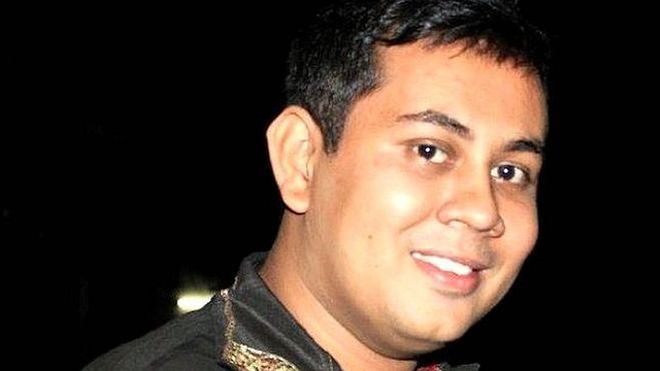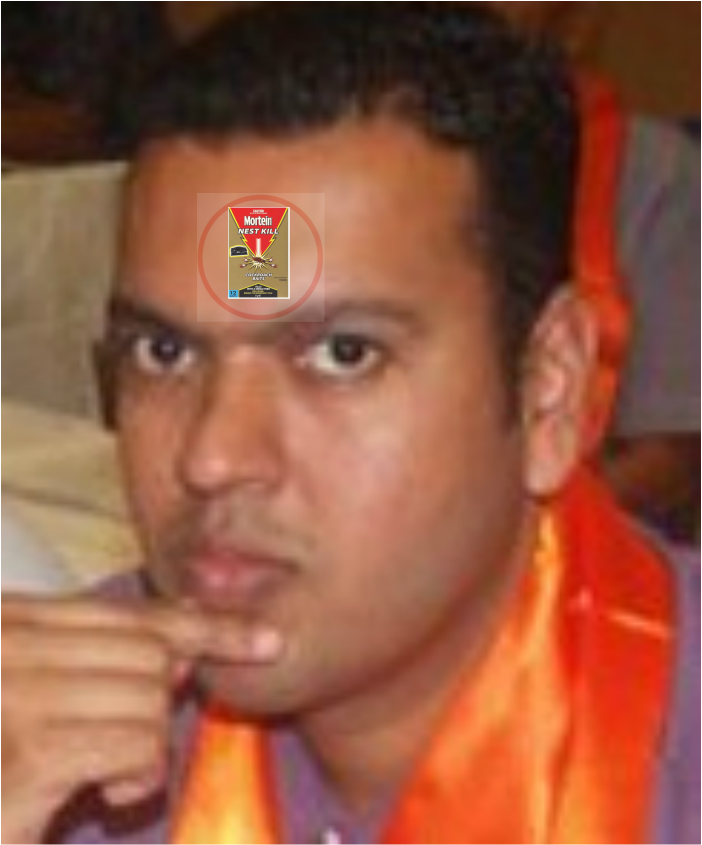
‘Non-Zero Sum’ Mindset in Inter-Faith Relations
By Mohammad Alami Musa
Synopsis
Religious harmony built on scant knowledge and a non-inclusive attitude of the “Religious Other” will not endure the severe tests on interreligious relations in a world replete with religious-linked conflicts. A non-zero sum mind-set can develop sustainable religious peace.
Commentary
THERE MAY be very few countries, perhaps none, that have enjoyed religious harmony for such a long period as Singapore. Fifty years had passed since its independence and Singapore is still an oasis of harmony in a world of violent conflicts perpetuated by actors who use religious narratives to justify their actions.
Critics of Singapore’s political system are quick to attribute this success to their perception that Singapore is a quasi-authoritarian state characterised by the draconian use of a strict legislative framework, socially intrusive policies and uncompromising enforcement to “nip in the bud” any tendencies causing disruptions to religious harmony.
Eradicating feeling of superiority and arrogance
Singapore offers no apology for adopting a very tough approach in spite of the emergence of the “new normal” - one that expects the state to be gentler in governing society, especially in the realm of religion. The maintenance of religious harmony is too critical an agenda to be left to chance and because of this, the state will continue to play its custodial role in ensuring that religious peace is sustained in the coming years.
Nevertheless, one factor critics always miss is the strong selfless commitment of religious leaders in Singapore to protect religious harmony arising from their sense of self-discipline and self-responsibility. This is the uniquely Singapore factor that does not exist in many countries.
Their influence on creating a positive inter-religious milieu is far greater than the available powerful instruments of the state and their significant contributions to social peace began even before the birth of the new Singaporean state. For example leaders of the Inter Religious Organisation (IRO) were pro-active in mobilising faith leaders to put forth the peaceful nature of religion and played a major role in the reconciliation process within the population in the aftermath of the 1950 Maria Hertogh and the 1964 communal riots.
Religious leaders continue to play a crucial role in building religious harmony today. The harmony now enjoyed by Singapore is largely dependent on goodwill as well as tolerance and has been able to hold Singapore’s religiously plural society together even though it is built on less than adequate knowledge of each other’s religious tradition and an attitude that lacks inclusivity of the religious Other.
These shortcomings are a source of concern as Singapore enters the next 50 years of its existence in a world that is fraught with volatilities, uncertainties, complexities and ambiguities in the realm of religious life due to rising fundamentalism, unprecedented religious diversity and heightened intolerance towards the religious Other. These external threats may have spill-over effects and severely test inter-religious relations in Singapore.
Non-zero sum mindset
The ties that bind religious communities and the harmony that exists amongst them in future need to be stronger, resilient and sustainable. The harmony has to be well-founded on interreligious literacy, a strong attitude of inclusivity of the religious other and a feeling of mutual dependence on each other. A global scholar on religion, Paul Knitter, suggested that to achieve this state of relations, religious communities should embrace a “non-zero sum” mindset in religious life when encountering those from other communities.
A non-zero sum mindset discourages a religious community to feel superior over the other communities and to compete with, dominate or even replace them. Rather, it promotes the virtue of humility as well as collaboration so that all religious communities will prosper and none will feel disadvantaged in their interreligious encounters. This means that the non-zero mindset calls for celebration of the joy of having others (neighbours, friends and colleagues) as belonging to different religions and acceptance that these other religions are valuable.
To genuinely feel as part of the big Singapore family and collectively work towards stronger as well as resilient religious harmony that is sustainable in future years, each religious community must put aside feeling of arrogance and claims of superiority. These feelings may be difficult to eradicate but is necessary. Humility is the hallmark of a gracious religious community seeking a genuine harmonious relationship with the other communities.
Prosper together or suffer together
It is with this feeling of humility that one can find “gems” in religions other than one’s own. These “gems” are for keeps by those who find them. This is the same for the learning spirit wherever knowledge is found; it is waiting for the learner to acquire it. By the same token, there can be a lot of “cross-learning” amongst people of religion because goodness can be found in all religions.
Wherever they are found, they belong to all, regardless of the religion that they belong to. In embracing such an ethos, one will discover how beautiful and inspirational other religions are. There is however a fear that the discovery of goodness and truths in other religions will weaken one’s commitment to one’s own religion. In fact, it is to the contrary. The inter-religious learning can be so enriching that it should strengthen one’s love of one’s own religion.
The consequential benefit of such cross learning is the consciousness that one does not need to hate all other religions, or denigrate, insult or demonise other religions to prove one’s love for one’s own religion and have deep faith in it. “Those who know one religion knows none” according to a renowned scholar on religion, William Cantwell Smith.
Another global scholar of religion, Hans Kung, wisely said that “There will be no peace amongst nations without peace amongst religions”. Rephrasing Kung’s dictum for the Singapore context, one could say: “There will be no harmony amongst communities without harmony amongst religions and there will be no harmony amongst religions without mutuality amongst religions.”
Mutuality means reciprocal relations between inter-dependent entities and this can be achieved when religious communities move away from “zero-sum-ness” where some prosper at the expense of others to “non-zero sum-ness” where all may flourish and none will feel disadvantaged. Either all religious communities go forward with a non-zero sum mentality or all do not go forward because of the tight inter-dependent context that they are in.
This feeling of inter-dependence will be stronger when people mutually benefit from an inter-religious symbiotic relationship. They realise how mutually nourishing and enriching the different religions can be on all communities, thus deepening the respect that they have for each other’s religion and strengthening mutual trust. This religious harmony will then be resilient in the face of the severe tests on inter-religious relations due to events within and outside Singapore.
Mohammad Alami Musa is Head of Studies on Interreligious Relations in Plural Societies (SRP) Programme at the S. Rajaratnam School of International Studies (RSIS), Nanyang Technological University, Singapore. This also appeared in The Straits Times.
By Mohammad Alami Musa
Synopsis
Religious harmony built on scant knowledge and a non-inclusive attitude of the “Religious Other” will not endure the severe tests on interreligious relations in a world replete with religious-linked conflicts. A non-zero sum mind-set can develop sustainable religious peace.
Commentary
THERE MAY be very few countries, perhaps none, that have enjoyed religious harmony for such a long period as Singapore. Fifty years had passed since its independence and Singapore is still an oasis of harmony in a world of violent conflicts perpetuated by actors who use religious narratives to justify their actions.
Critics of Singapore’s political system are quick to attribute this success to their perception that Singapore is a quasi-authoritarian state characterised by the draconian use of a strict legislative framework, socially intrusive policies and uncompromising enforcement to “nip in the bud” any tendencies causing disruptions to religious harmony.
Eradicating feeling of superiority and arrogance
Singapore offers no apology for adopting a very tough approach in spite of the emergence of the “new normal” - one that expects the state to be gentler in governing society, especially in the realm of religion. The maintenance of religious harmony is too critical an agenda to be left to chance and because of this, the state will continue to play its custodial role in ensuring that religious peace is sustained in the coming years.
Nevertheless, one factor critics always miss is the strong selfless commitment of religious leaders in Singapore to protect religious harmony arising from their sense of self-discipline and self-responsibility. This is the uniquely Singapore factor that does not exist in many countries.
Their influence on creating a positive inter-religious milieu is far greater than the available powerful instruments of the state and their significant contributions to social peace began even before the birth of the new Singaporean state. For example leaders of the Inter Religious Organisation (IRO) were pro-active in mobilising faith leaders to put forth the peaceful nature of religion and played a major role in the reconciliation process within the population in the aftermath of the 1950 Maria Hertogh and the 1964 communal riots.
Religious leaders continue to play a crucial role in building religious harmony today. The harmony now enjoyed by Singapore is largely dependent on goodwill as well as tolerance and has been able to hold Singapore’s religiously plural society together even though it is built on less than adequate knowledge of each other’s religious tradition and an attitude that lacks inclusivity of the religious Other.
These shortcomings are a source of concern as Singapore enters the next 50 years of its existence in a world that is fraught with volatilities, uncertainties, complexities and ambiguities in the realm of religious life due to rising fundamentalism, unprecedented religious diversity and heightened intolerance towards the religious Other. These external threats may have spill-over effects and severely test inter-religious relations in Singapore.
Non-zero sum mindset
The ties that bind religious communities and the harmony that exists amongst them in future need to be stronger, resilient and sustainable. The harmony has to be well-founded on interreligious literacy, a strong attitude of inclusivity of the religious other and a feeling of mutual dependence on each other. A global scholar on religion, Paul Knitter, suggested that to achieve this state of relations, religious communities should embrace a “non-zero sum” mindset in religious life when encountering those from other communities.
A non-zero sum mindset discourages a religious community to feel superior over the other communities and to compete with, dominate or even replace them. Rather, it promotes the virtue of humility as well as collaboration so that all religious communities will prosper and none will feel disadvantaged in their interreligious encounters. This means that the non-zero mindset calls for celebration of the joy of having others (neighbours, friends and colleagues) as belonging to different religions and acceptance that these other religions are valuable.
To genuinely feel as part of the big Singapore family and collectively work towards stronger as well as resilient religious harmony that is sustainable in future years, each religious community must put aside feeling of arrogance and claims of superiority. These feelings may be difficult to eradicate but is necessary. Humility is the hallmark of a gracious religious community seeking a genuine harmonious relationship with the other communities.
Prosper together or suffer together
It is with this feeling of humility that one can find “gems” in religions other than one’s own. These “gems” are for keeps by those who find them. This is the same for the learning spirit wherever knowledge is found; it is waiting for the learner to acquire it. By the same token, there can be a lot of “cross-learning” amongst people of religion because goodness can be found in all religions.
Wherever they are found, they belong to all, regardless of the religion that they belong to. In embracing such an ethos, one will discover how beautiful and inspirational other religions are. There is however a fear that the discovery of goodness and truths in other religions will weaken one’s commitment to one’s own religion. In fact, it is to the contrary. The inter-religious learning can be so enriching that it should strengthen one’s love of one’s own religion.
The consequential benefit of such cross learning is the consciousness that one does not need to hate all other religions, or denigrate, insult or demonise other religions to prove one’s love for one’s own religion and have deep faith in it. “Those who know one religion knows none” according to a renowned scholar on religion, William Cantwell Smith.
Another global scholar of religion, Hans Kung, wisely said that “There will be no peace amongst nations without peace amongst religions”. Rephrasing Kung’s dictum for the Singapore context, one could say: “There will be no harmony amongst communities without harmony amongst religions and there will be no harmony amongst religions without mutuality amongst religions.”
Mutuality means reciprocal relations between inter-dependent entities and this can be achieved when religious communities move away from “zero-sum-ness” where some prosper at the expense of others to “non-zero sum-ness” where all may flourish and none will feel disadvantaged. Either all religious communities go forward with a non-zero sum mentality or all do not go forward because of the tight inter-dependent context that they are in.
This feeling of inter-dependence will be stronger when people mutually benefit from an inter-religious symbiotic relationship. They realise how mutually nourishing and enriching the different religions can be on all communities, thus deepening the respect that they have for each other’s religion and strengthening mutual trust. This religious harmony will then be resilient in the face of the severe tests on inter-religious relations due to events within and outside Singapore.
Mohammad Alami Musa is Head of Studies on Interreligious Relations in Plural Societies (SRP) Programme at the S. Rajaratnam School of International Studies (RSIS), Nanyang Technological University, Singapore. This also appeared in The Straits Times.
A non-zero sum mindset discourages a religious community to feel superior over the other communities and to compete with, dominate or even replace them. Rather, it promotes the virtue of humility as well as collaboration so that all religious communities will prosper and none will feel disadvantaged in their interreligious encounters. This means that the non-zero mindset calls for celebration of the joy of having others (neighbours, friends and colleagues) as belonging to different religions and acceptance that these other religions are valuable.
Bangladesh blogger Niloy Neel hacked to death in Dhaka
A Bangladeshi blogger known for his atheist views has been hacked to death by a gang armed with machetes in the capital Dhaka, police say.
Niloy Neel was attacked at his home in the city's Goran area.
He is the fourth secularist blogger to have been killed this year by suspected Islamist militants in Bangladesh.
Imran H Sarkar, head of the Bangladesh Blogger and Activist Network, told the BBC that Mr Neel had been an anti-extremist voice of reason.
"He was the voice against fundamentalism and extremism and was even a voice for minority rights - especially women's rights and the rights of indigenous people," he said.
BBC World Service South Asia editor Charles Haviland says that, like previous victims, Mr Neel was not only secular but atheist and, like two of the others, he was from a Hindu, not a Muslim, background.
A Bangladeshi blogger known for his atheist views has been hacked to death by a gang armed with machetes in the capital Dhaka, police say.
Niloy Neel was attacked at his home in the city's Goran area.
He is the fourth secularist blogger to have been killed this year by suspected Islamist militants in Bangladesh.
Imran H Sarkar, head of the Bangladesh Blogger and Activist Network, told the BBC that Mr Neel had been an anti-extremist voice of reason.
"He was the voice against fundamentalism and extremism and was even a voice for minority rights - especially women's rights and the rights of indigenous people," he said.
BBC World Service South Asia editor Charles Haviland says that, like previous victims, Mr Neel was not only secular but atheist and, like two of the others, he was from a Hindu, not a Muslim, background.






